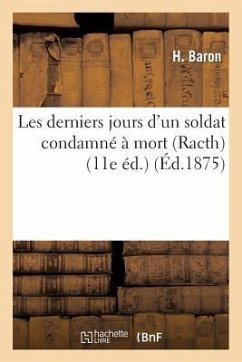
Les Derniers Jours de Pékin
Versandkostenfrei!
Versandfertig in 1-2 Wochen
13,99 €
inkl. MwSt.

PAYBACK Punkte
7 °P sammeln!
... Quand nous sommes arrivés dans la mer Jaune, Pékin était pris et les batailles finissaient ; je n'ai donc pu observer nos soldats que pendant la période de l'occupation pacifique ; là, partout, je les ai vus bons et presque fraternels envers les plus humbles Chinois. Puisse mon livre contribuer pour sa petite part à détruire d'indignes légendes éditées contre eux !...














